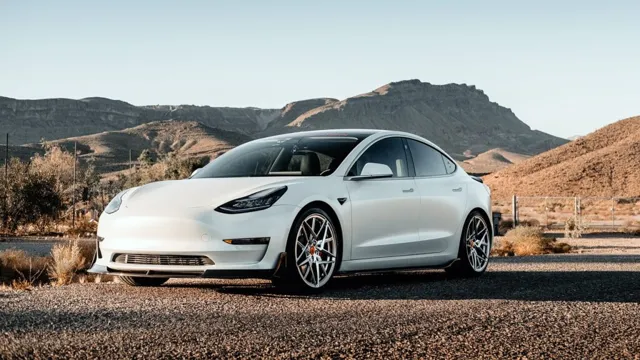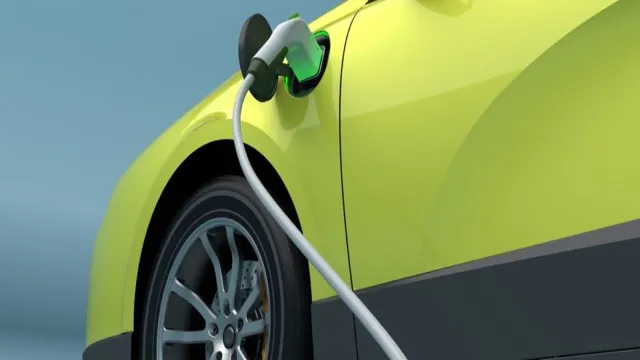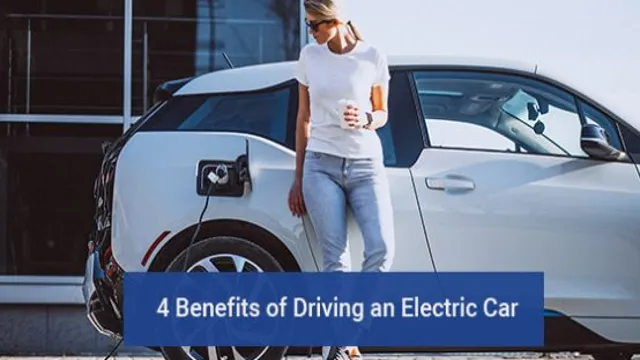10 Compelling Benefits of Choosing a Tesla Electric Car for Your Benefit in Kind Scheme
Have you ever considered how much you spend on your company car? What if there was a way to save money while contributing to a cleaner environment? Enter the Tesla Electric Car Benefit in Kind, a tax incentive for businesses that provide electric vehicles as company cars. This program aims to promote sustainable transportation by reducing the tax burden on electric cars compared to traditional gasoline-powered ones. With the growing concern over climate change, many companies are looking for ways to mitigate their environmental impact, and the Tesla Electric Car Benefit in Kind offers a tangible solution.
In this blog post, we’ll delve deeper into the program and explore the benefits of choosing an electric car for your company fleet.
What is Benefit in Kind?
Wondering what Benefit in Kind (BiK) means, especially in relation to your Tesla electric car? In simple terms, BiK refers to the value of any non-cash benefit that an employee enjoys from their employer. In the UK, if you use a company car that emits carbon dioxide (CO2) emissions, you’re typically required to pay the government some amount of tax. This is where BiK comes in.
The tax you pay depends on the car’s CO2 emissions, the vehicle’s list price (including options), and your income tax bracket. If you own a Tesla electric car, you may have to pay significantly less tax because it has very low CO2 emissions. This is great news for electric car owners, as BiK has the potential to significantly reduce the cost of running a company car!
Definition and Explanation
If you’ve ever heard the term “Benefit in Kind,” you may be wondering what it means. Essentially, a Benefit in Kind is a form of non-cash payment that you receive from your employer in addition to your salary or wages. These benefits can come in many forms, such as company cars, housing allowances, or even free tickets to events.
While they may seem like a perk, it’s important to note that Benefit in Kind payments are still subject to taxation. They are specifically taxed as ‘benefits-in-kind’, which means they are taxed differently than your regular income. The tax owed on a Benefit-In-Kind may depend on the value of the benefit itself, as well as your overall income.
Therefore it’s important to keep track of these payments and understand how they may affect your overall tax bill. Being aware of these nuances of the tax system can prevent unintended tax consequences and help you to make informed decisions about accepting Benefit in Kind offers from your employer.

Benefits of Choosing Tesla as Company Car
Tesla electric cars offer numerous benefits when used as a company car, particularly when it comes to the benefit in kind (BIK) tax calculation. With zero-emissions and highly-efficient electric powertrains, Tesla models such as the Model 3 and Model S are frequently eligible for low or zero BIK rates, which can translate into significant savings for both employers and employees alike. Additionally, Tesla vehicles are known for their exceptional driving performance and advanced technology, making them a highly desirable choice for business users who prioritize comfort, luxury, and sustainability.
Whether you’re looking to reduce your environmental impact, cut your costs, or simply enjoy the thrill of driving an impeccable electric car, choosing Tesla as your company vehicle is an excellent decision that will pay dividends for years to come. So if you’re searching for a car that delivers on all fronts, start exploring the range of Teslas available today and discover the benefits that they can offer for you and your business.
Lower Emissions and Tax Savings
As companies aim to reduce their carbon footprint and save on taxes, choosing a Tesla as a company car has become an increasingly popular choice. With electric vehicles (EVs) emitting less carbon dioxide than traditional gas-powered cars, companies can lower their emissions and operate in a more environmentally sustainable way. Moreover, as governments incentivize the purchase of EVs with tax credits and lower taxes, companies can save a considerable amount of money when switching to a Tesla fleet.
Not only do Tesla vehicles offer these benefits, but they also provide a premium driving experience with high-tech features. Choosing Tesla as a company car not only aligns with company values of sustainability but also provides financial savings and a luxurious driving experience.
Reduced Maintenance Costs
Reduced maintenance costs When it comes to company cars, reducing maintenance costs is a major factor to consider. Choosing Tesla as your company car can greatly benefit you in this regard. Tesla vehicles are known for their reliability and durability, requiring minimal maintenance.
They have fewer moving parts compared to traditional combustion engine cars, reducing the likelihood of mechanical issues. This means less time and money spent on routine service and repairs. In addition, Tesla’s all-electric powertrain also eliminates the need for oil changes and other costly maintenance procedures.
Not only does this save you money, it also helps to reduce your company’s carbon footprint. By choosing a Tesla as your company car, you can be confident that you are making a sound investment in long-term savings.
Understanding Benefit in Kind Tax Calculation
If you’re considering purchasing an electric car such as a Tesla and plan on using it for business purposes, it’s important to understand the concept of benefit in kind tax calculation. Benefit in kind refers to any non-cash benefit an employee receives from their employer on top of their salary, which then incurs tax. When it comes to electric cars like a Tesla, there are a few factors that can affect the amount of benefit in kind tax you’ll need to pay.
These include the list price of the vehicle, its CO2 emissions, and the amount of private use it receives. However, it’s worth noting that electric cars often come with lower benefit in kind tax rates, as they produce fewer emissions and are generally seen as a more environmentally friendly choice. In any case, it’s essential to ensure that you accurately calculate your benefit in kind tax liability to avoid any unexpected surprises come tax season.
Factors and Calculating Formula
Benefit in Kind tax calculation If you are an employer providing your employees with benefits, then you will need to understand how to calculate the Benefit in Kind (BIK) tax that your employees will need to pay. BIK tax is the tax that an employee must pay on any non-cash benefits they receive as part of their employment package. These benefits can include things like company cars, private healthcare, and accommodation.
To calculate the BIK tax, you will need to take into account a number of different factors, including the value of the benefit provided, the employee’s income tax bracket, and the tax rules around the specific benefit. Depending on the type of benefit being provided, there may also be additional factors to consider, such as the CO2 emissions of a company car or the market rent value of accommodation. When calculating BIK tax, there is also a specific formula that is used.
This formula takes into account the value of the benefit, the employee’s income tax bracket, and the percentage of the year that the benefit is being used for personal use. The end result of the calculation will give you the amount of tax that the employee will need to pay on the benefit. Understanding the factors and formula used to calculate BIK tax can be complex, but it is important for both employers and employees to have a clear understanding of how it works.
This will help to ensure that the correct amount of tax is paid and that there are no surprises come tax time. If you are unsure about how to calculate BIK tax, then it is always advisable to seek advice from a tax specialist or professional.
Examples of Benefit in Kind Calculation for Tesla Models
As a company car driver, it’s important to understand how your Benefit in Kind (BIK) tax is calculated. The calculation is based on several factors, such as the car’s list price, CO2 emissions, and fuel type. When it comes to Tesla models, their electric-powered vehicles are highly sought after for their performance and eco-friendliness.
Let’s take the Tesla Model S, for example. With its list price starting at £83,980, and zero emissions, the BIK tax is calculated at 1% for the current tax year. This means that a basic rate taxpayer will pay £840 in BIK tax for the year.
The Tesla Model 3 also has a low BIK rate at just 1%, with a starting price of £40,990. These calculations make Tesla models an attractive option for company car drivers who are looking to reduce their tax bills while driving a high-performance, eco-friendly car. So, it’s worth exploring the full range of Tesla models to see which one suits your need.
How to Apply for Benefit in Kind for Tesla Electric Car
If you’re a company car driver who has recently acquired a Tesla electric car, it’s time to learn about how to apply for the Benefit in Kind (BIK) tax. As of 2021, the BIK rates for electric vehicles have dropped to 1% making them extremely cost-effective compared to standard petrol and diesel cars. This could be a game-changer for those who’ve been looking to purchase an electric car for business use but have been hesitant due to high tax prices.
To apply for the BIK, you will need to provide a P11D form to HM Revenue and Customs which is a document that contains all the information regarding employment at a company, such as salaries, expenses, and benefits. One of the benefits, in this case, is the car you have received from your employer, so it’s crucial that this information is included. There’s also a newer form, called the P46 (Car), which must be submitted if the employee receives a company supplied vehicle for the very first time.
By keeping track of these documents and staying updated on tax rates, you can successfully apply for BIK for your Tesla electric car and save a significant amount on your taxes.
Step by Step Process
If you’re thinking of buying a Tesla electric car and want to know how to apply for the Benefit in Kind tax relief, then you’ve come to the right place. The process is quite simple and easy to follow. Firstly, you need to calculate the Benefit in Kind by multiplying the Original Market Value (OMV) of the car by its applicable percentage.
Next, complete the motor dealer declaration form, which will be provided by your dealer, and submit it to Revenue. Once the form has been submitted and processed, you will receive a notification from Revenue, informing you of the amount of Benefit in Kind that you can claim. Finally, you can claim the relief by submitting a claim form to your employer or accountant.
It’s important to note that the Benefit in Kind tax relief is only available for electric cars with CO2 emissions of 50g/km or less, and the relief is not applicable for hybrid vehicles. So, if you’re considering buying a Tesla electric car, then this is one great incentive to go green, save money, and contribute to a cleaner environment.
Conclusion
In summary, electing to drive a Tesla as a company car comes with a whole host of potentially huge benefits for both the employee and the employer. Not only will the driver enjoy a luxurious and cutting-edge vehicle, but they’ll also save money on fuel and reduce their carbon footprint – a win-win in today’s world. And for the employer, the Benefit in Kind tax savings alone could make it a no-brainer decision.
So, in essence, choosing a Tesla as your company car is not only the smart choice, but also the environmentally responsible one. Plus, let’s be honest – who doesn’t want to feel like a futuristic superhero behind the wheel of one of these bad boys?
FAQs
What is Benefit in Kind (BIK) for electric cars like Tesla?
Benefit in Kind (BIK) is the tax you pay on the value of benefits you receive from your employer. In the case of electric cars like Tesla, BIK is significantly lower than petrol or diesel cars due to their low emissions.
How does driving a Tesla electric car impact the environment?
Driving a Tesla electric car reduces greenhouse gas emissions since it does not emit harmful pollutants like nitrogen oxide, particulate matter, and carbon monoxide that pollute the air.
Can you charge a Tesla electric car at home and how long does it take?
Yes, you can charge your Tesla electric car at home using a standard domestic power outlet or a dedicated EV charger. The charging time depends on the capacity of the charger, but on average, it takes between 8-10 hours to fully charge a Tesla electric car.
What are the financial benefits of owning a Tesla electric car compared to a traditional car?
Owning a Tesla electric car can save you money on fuel costs, road tax, and maintenance expenses since electric cars have lower running costs. Additionally, the UK government offers incentives like grants and tax credits to encourage the adoption of electric vehicles.




